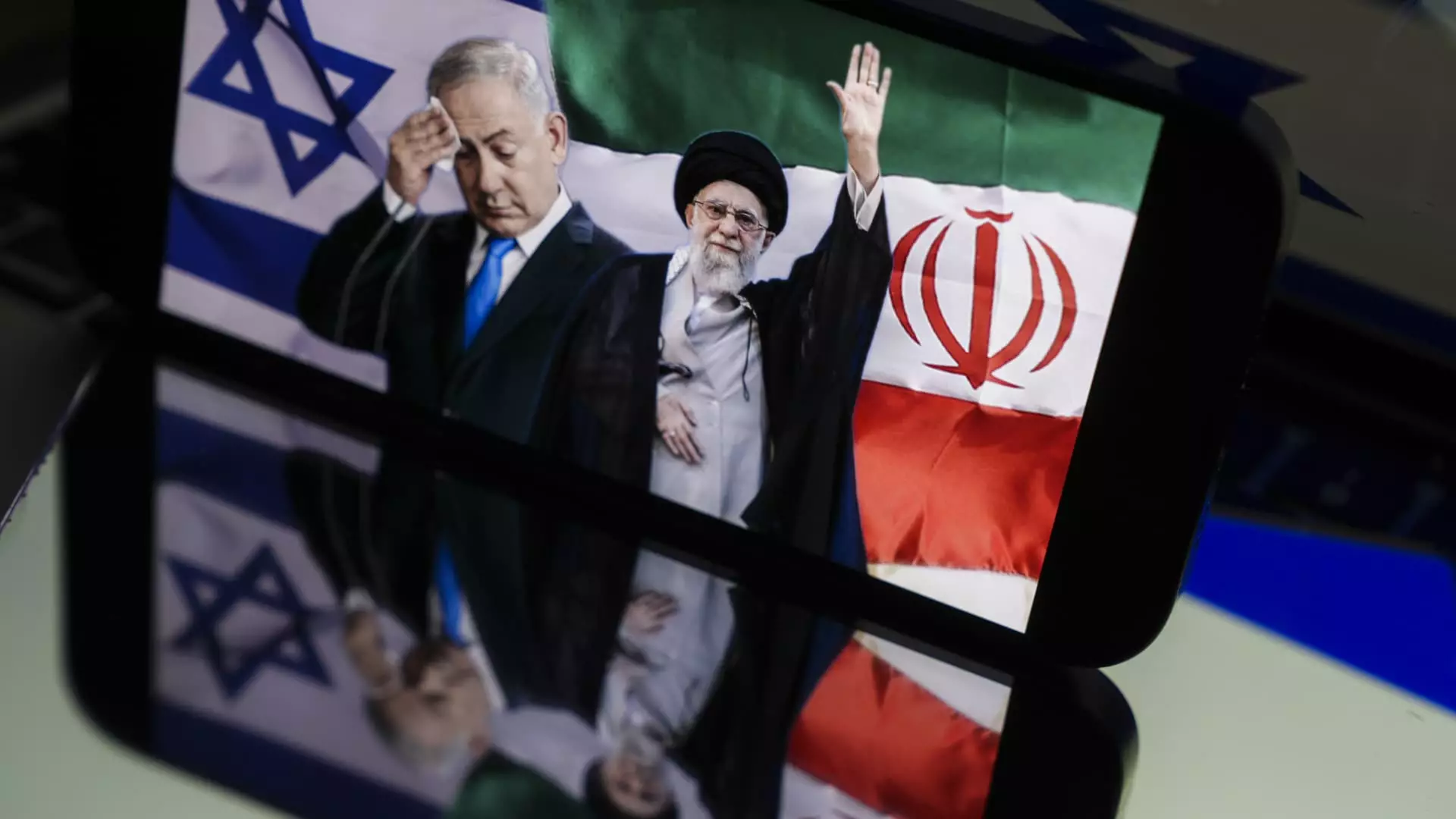In today’s geopolitically charged world, it’s tempting to see military conflicts as tools to manipulate markets or extract political leverage. However, history and recent events unequivocally demonstrate that war’s repercussions on global energy stability are not only counterproductive but dangerously destabilizing. The recent flare-up in the Middle East, particularly between Iran and Israel, reveals a profound misunderstanding: that conflict can serve as a meaningful, sustainable strategy for managing energy supplies or market stability. The harsh reality is that wars—be they overt or covert—disrupt supply chains, deepen economic uncertainties, and ultimately threaten the very institutions that underpin a balanced global energy landscape.
Iran’s recent diplomatic commentary underscores this flawed logic. As the third-largest OPEC producer, Tehran’s suspicion of Western sanctions and military strikes reveals a deep-rooted reliance on conflict-induced narratives about power and control. Yet, the truth is that war and hostilities create unpredictable volatility—an economic black hole that destabilizes rather than stabilizes markets. When Iran engaged in missile exchanges with Israel, and the US responded with targeted strikes against Iranian nuclear sites, the immediate reaction was a spike in crude prices. But such short-term price movements veil the long-term damage: reduced investor confidence, increased geopolitical risks, and a more fragmented supply network. War isn’t an accelerator of market rationality but a catalyst for chaos.
The misconception that military action can curb or control energy markets ignores a fundamental economic principle: supply and demand are highly susceptible to shocks. Disruptions caused by conflicts ripple outward, forcing countries and companies to navigate heightened risks. The idea that tension or war could lead to a measured reduction in supply—thereby stabilizing prices—is perilous. Instead, it often precipitates a scramble for alternative sources, more unpredictable price swings, and an erosion of trusted supply channels. Oil markets, far from benefiting from warfare, endure destabilizing turbulence that makes planning and investment riskier, further complicating global efforts toward clean energy transitions or long-term economic growth.
The Illusion of Power in Escalation
The narrative that violence and confrontation project strength, especially in the volatile Middle East, is an oversimplification rooted in flawed perceptions of global leverage. Both Iran and Israel, backed by the US and regional allies, seem to believe that escalating military actions reinforce their bargaining positions. But this is a dangerous mirage. Actual power stems from stability, international cooperation, and forward-looking diplomacy—not from the destruction wrought by war. The recent escalation and subsequent ceasefire demonstrate how fragile this perceived power truly is.
For Iran, ongoing sanctions and military threats appear to be part of a strategy to demonstrate defiance, but they often backfire by alienating potential allies and exacerbating economic decline. Sanctions cripple Iran’s economy, and its reliance on shadow fleets transporting crude to China illustrates how war and conflict distort market fairness. Instead of fostering resilience, these cycles of hostility breed dependency on clandestine networks and worsen global oil price volatility. The prospect of a nuclear deal seems increasingly distant, with each escalation deepening the schism and raising the likelihood of future conflicts, which only entrench the cycle of instability.
The belief in military escalation as a means to an end ignores the lessons learned across decades: peace and diplomacy are more effective in guaranteeing sustainable energy markets. War’s immediate effect may seem to alter the status quo, but its long-term consequences tend to destabilize that very stability. Instead of advancing strategic interests, conflict diminishes trust, discourages investment, and leaves economies vulnerable to the chaos of unpredictable sanctions, blockades, and regional destabilization.
Why Diplomatic Resolution Is the Key to Stability
The true path to energy stability extends beyond the battlefield. Diplomacy, international cooperation, and strategic patience offer the only sustainable means to balance market demands with geopolitical risks. Relying on conflict as a lever is shortsighted and ignores the interconnectedness of today’s global energy architecture. A pivot toward diplomatic engagement, even with complex and seemingly intractable actors like Iran, must be prioritized. Such an approach recognizes that long-term stability is rooted not in force, but in mutual understanding and constructive dialogue.
Furthermore, embracing a center-wing liberal perspective emphasizes the importance of multilateral institutions and collaborative frameworks in resolving conflicts that threaten global markets. While proponents of aggressive posturing often tout military strength, a centrist approach advocates for pragmatic diplomacy complemented by targeted sanctions that are designed to incentivize positive change rather than purely punish. This strategy underscores the importance of engagement over escalation, viewing problems such as Iran’s nuclear ambitions through diplomatic lenses instead of military ones.
In the end, war as a tool to manage oil markets is a dangerous illusion rooted in short-term thinking. It sacrifices long-term stability for momentary gains, creating cycles of chaos that undermine global economic resilience. A smarter, more sustainable approach is rooted in diplomacy, patience, and strategic cooperation—values that are essential to navigating the volatile but ultimately manageable landscape of the world’s energy future.


Leave a Reply